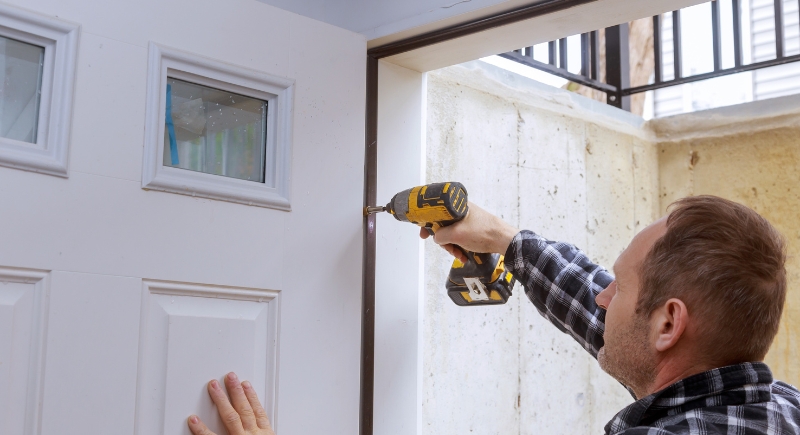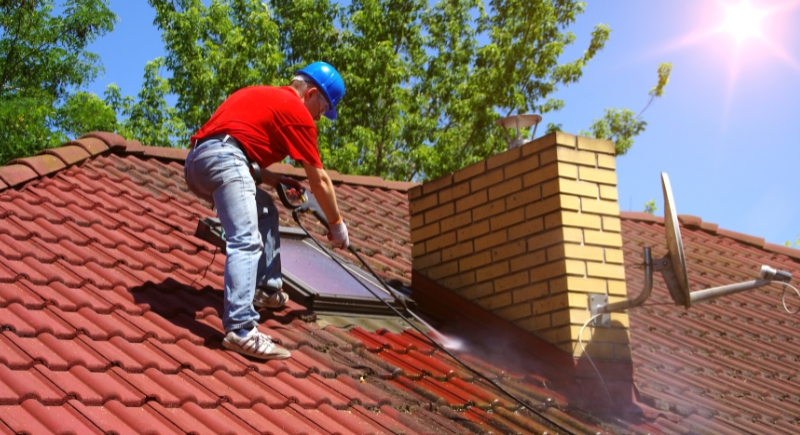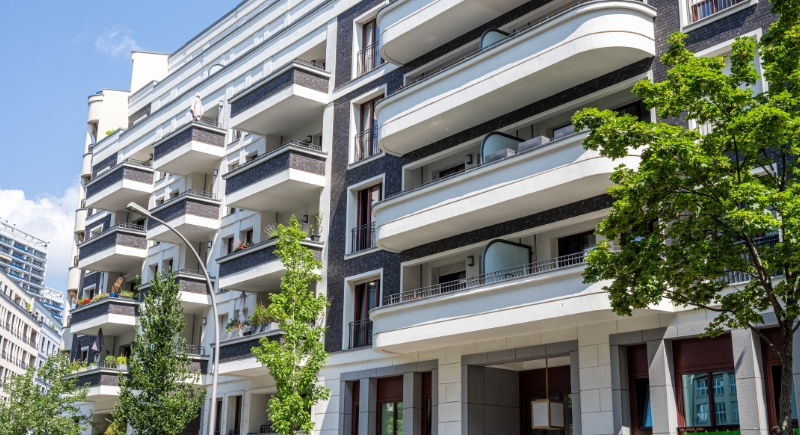Retiring at home feels comforting, but the upkeep of a house can surprise even those who planned carefully. The good news is that plenty of practical tricks exist to stretch a fixed income further. Retirees must find reliable, low-cost ways to handle repairs and maintenance.
Here are clever ways older homeowners are keeping things running smoothly without draining savings over repairs.
Call On Family or Close Friends

Credit: Canva
A loose step or squeaky hinge might not justify hiring a pro, and that’s where relatives or longtime friends step in. Adult children often enjoy pitching in, and neighbors from faith circles sometimes coordinate casual fix-it days. These small acts not only cut costs but also keep your home projects feeling social and manageable.
Ask Neighbors for Shared Referrals

Credit: Getty Images
Instead of rolling the dice on unknown contractors, many retirees ask who in the neighborhood has impressed recently. A shared roof cleaner or gutter team often lowers costs, especially when work is scheduled in clusters. Knowing someone nearby has firsthand experience with a service brings a layer of confidence that online ads rarely match.
Check With Local Nonprofit Agencies

Credit: Canva
Certain nonprofits provide free or reduced-cost maintenance to seniors meeting income guidelines. Programs like the New York Foundation for Senior Citizens pair older homeowners with vetted workers for a range of small repairs. To find local options, contact your Area Agency on Aging or United Way office.
Use Home Health Aides Strategically

Credit: Canva
Some seniors already receive help at home from aides or companions. Though they don’t do repairs, these workers often notice unsafe conditions such as loose rugs or faulty grab bars. They can alert family members early, preventing hazards that would otherwise lead to more expensive fixes later.
Ask Your Financial Advisor for Recommendations

Credit: pexels
Some financial planners keep lists of proven contractors because clients share who treated them fairly. When planning major updates like a new deck or HVAC upgrade, an advisor can help figure out funding methods that don’t strain your fixed income. Their perspective often prevents overspending in moments of urgency or excitement.
Use Online Services Cautiously

Credit: pressmaster
Digital platforms make finding help feel easy, but retirees often double-check profiles before hiring. Choosing sites that screen workers and show verified photos reduces risk. Reading reviews carefully and calling references avoids a painful lesson later. The goal is to hire someone reliable without paying for unnecessary extras or redoing poor workmanship.
Budget for High-Cost, Infrequent Repairs

Credit: Getty Images
Even a well-kept home has big-ticket needs every decade or so, like a roof replacement or slab repair. These pack a financial punch when ignored. Many retirees make a habit of assessing aging components yearly so they’re not blindsided when a major fix finally becomes unavoidable.
Set Aside 1%–3% Annually for Upkeep

Credit: Getty Images
A useful benchmark is reserving between one and three percent of your home’s value each year. This money is intended for predictable needs such as HVAC servicing, exterior paint touch-ups, or seasonal yard care. Keeping this reserve prevents these routine costs from disrupting a fixed retirement income.
Include Accessibility Upgrades in Your Planning

Credit: Canva
Preparing to stay in your home may mean adding safety features. Installing handrails, non-slip flooring, or a ramp requires upfront spending but reduces fall risks. Planning for these modifications in advance spreads out costs and avoids rushed decisions that often come with higher labor or material prices.
Tap Into Shared Maintenance Plans

Credit: Getty Images
Some home care companies now bundle light handyman services with personal support visits. These might cover quick plumbing checks, minor appliance tune-ups, or simple repairs. For retirees already using care services, these add-ons can keep maintenance tasks predictable and appointments coordinated without repeatedly searching for different contractors.
Explore HOA Coverage for Condo Owners

Credit: Canva
Downsizing to a condo or townhome can shift certain costs to the homeowners’ association. Exterior elements such as roofs, paint, or groundskeeping are usually managed collectively, reducing your direct responsibility. Still, interior items remain yours to maintain, so factor those into your personal repair budget.
Prepare an Emergency Fund Beyond Fixed Expenses

Credit: Creativa Images
Unexpected repairs strike even the most organized households. Keeping nine to twelve months of living costs in a separate account gives room to handle a broken furnace or refrigerator. This cushion reduces the temptation to dip into long-term investments, which can be costly to access or risky during market dips.
Avoid Unsolicited Repair Offers

Credit: Getty Images
Scams often target older homeowners with alarming claims about needed work. Do not hire anyone who appears unannounced or calls out of the blue. Instead, confirm business credentials with local directories or the Better Business Bureau and insist on a written estimate before any work starts.
Consider Downsizing to Reduce Maintenance Costs

Credit: Getty Images
Some retirees find the upkeep of a large house no longer makes sense. Moving into a smaller property often means fewer appliances, less yard work, and lower routine expenses. The equity unlocked can cover future repairs or simply provide breathing room, giving homeowners more confidence about the years ahead.
Don’t Be Afraid to Delay Retirement

Credit: pexels
If your home requires expensive updates soon and funds are tight, staying in the workforce a little longer can help. Using active income to cover those repairs preserves your savings. This short-term choice can prevent early withdrawals and provide greater stability once retirement begins.
